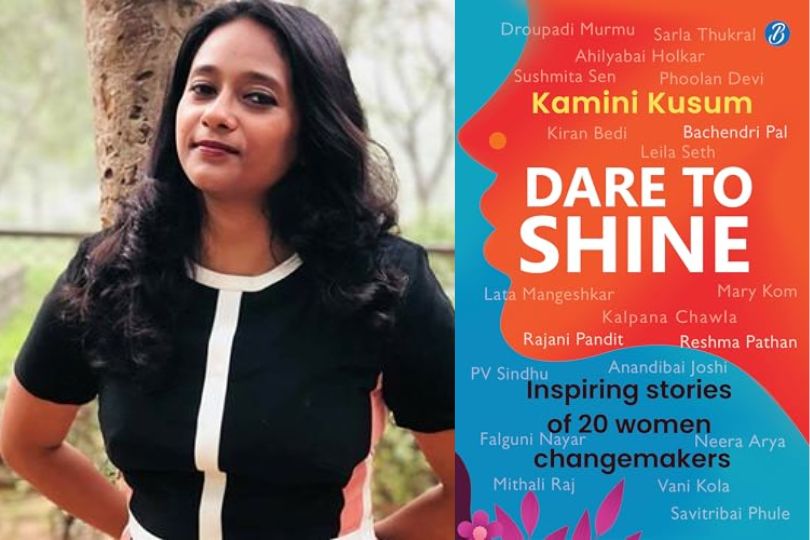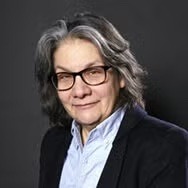Interview with Kamini Kusum Author of “Dare to Shine: Inspiring stories of 20 women changemakers”
Discover inspiring stories in the interview with Kamini Kusum, author of "Dare to Shine: Inspiring Stories of 20 Women Changemakers," exclusively on Frontlist.on Mar 08, 2024

Kamini Kusum holds a postgraduate degree in management and has worked for several years
in the corporate sector. She has authored well known books that deal with complex emotions
and narratives around women. Her books include Dare to Shine, Difficult Girls, Gunpoint
Groom, Twisted Temptations, Honey and the moon, A new dawn and Queen (Hindi). Her books
have been applauded by renowned journals like The Statesman, Mid-Day, Hindustan Times,
Deccan Herald among others. Besides writing she loves nature, traveling, food, movies and
yoga.
Frontlist: As someone who has predominantly authored fiction books, what inspired you to shift your focus to compiling the real-life stories of these remarkable women into a non-fiction format for "Dare to Shine"?
Kamini: I had been writing fiction for about 6 to 7 years continuously. During Covid, I wrote 3 digital series, which comprised 32 short books. So, I was writing one short book almost every month or at least every alternate month. Honestly, I had started feeling saturated in writing fiction, which included intense romance, romantic thrillers, romantic drama and suspense. I was truly looking forward to writing something really interesting, something which was different. That was the time when my publisher bounced off an idea about an interesting non-fiction book. I further thought about and researched the concept. I really liked the idea of writing true-life accounts of inspiring women from diverse fields and different times of Indian history as well as the present. That is how the project 'Dare to Shine' was conceived. I knew this was going to involve a lot of research work, both primary and secondary. I, being a research-oriented person, loved the idea and was quite excited about writing this book.
Frontlist: By featuring women from various fields and backgrounds in "Dare to Shine," what specific message or narrative did you aim to convey about the nature of success and empowerment for women?
Kamini: While selecting these women, I had kept a few things in my mind. The women had to be from diverse fields. They had to be chosen from different times of Indian history. They could be dead or alive. The women had to be a mix of some known names as well as those who really had inspiring lives, but somehow, their names couldn't find due place and recognition in Indian history and media. Some women have really done great things in their life, but unfortunately, they haven't been much talked about. So, the purpose of this book is to bring out the inspiring life accounts of those few selected women from diverse fields who could inspire others to take up challenges in their lives. Also, there are certain fields that have been stereotyped as male-dominated areas. So, the idea was to bring forward the life journey of even those women who have broken the stereotype and made their mark in the so-called male bastion. A woman can be a space scientist, a stunt woman, a mountaineer, a private detective, a politician, a venture capitalist, and excel in many more such fields that are certainly not gender specific.
Frontlist: Could you share some of the challenges you faced while researching and compiling the stories of these remarkable women?
Kamini: The biggest challenge I faced while writing this book was that there was not much content about some women. There aren't many articles or books written on some of these women. An example is Neera Arya, the lady spy of the Indian National Army. Very few people know about her, and there is very little content available in the public domain. It was very difficult to gather information about her. I had to dig out archives, visit libraries and had to put in a lot of extensive research to write the life account of this remarkable woman. Same problem I faced while writing about a few more women. But with constant effort, I was able to gather information about these women. Also, I wanted to reach out to as many women as possible who are alive. Reaching out to everyone for the interview was not possible. So, I had to adopt both ways of research, primary as well as secondary. I have ensured that all the facts presented has been backed by proper references.
Frontlist: What was your process for selecting the twenty women whose stories are highlighted in "Dare to Shine," and what specific qualities or achievements did you look for when choosing these remarkable individuals?
Kamini: There were a few criteria based on which I selected these women. These women had to have remarkable achievements and an inspiring life. I wanted names from different timelines of history. So, these names are a mix of dead and alive people, women who have been talked about and written about and, at the same time, women who have great achievements to their credit but didn't get the due place and spotlight in textbooks and in media. I have taken care to choose even those women who have dared to break stereotypes and made their mark even in those so-called male-dominated areas.
Frontlist: What common characteristic or trait do you believe these women share, which you perceive as crucial in enabling them to achieve their goals and navigate challenges successfully?
Kamini: All these women have accepted the challenges life has thrown at them. They fought against all odds to fulfill their dreams and proved that nothing and no one can pull them down.
Frontlist: As an individual with a background in the corporate sector, what strategies do you believe workplaces can implement to enhance support for women's professional development and to effectively address gender disparities within their organizational structures?
Kamini: I believe corporations don't really differentiate between genders when it comes to various roles at the workplace. At least I haven't seen or faced any gender discrimination at my workplaces in my corporate career spanning over 13 years. But yes, organizations do need to care for their female employees. They need to keep a close watch that no discrimination is happening against any woman employee. There should be strict policies against this evil, and a transparent grievance redressal system should also be in place.

.jpg)
.jpg)
.jpg)
.jpg)
.jpg)
.jpg)

.jpg)

.jpg)
.jpg)

.jpg)
.jpg)
.jpg)










Sorry! No comment found for this post.